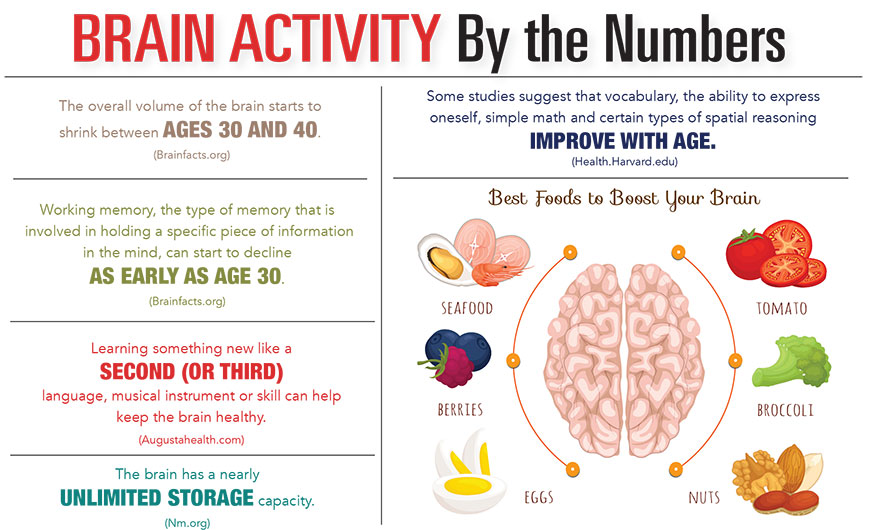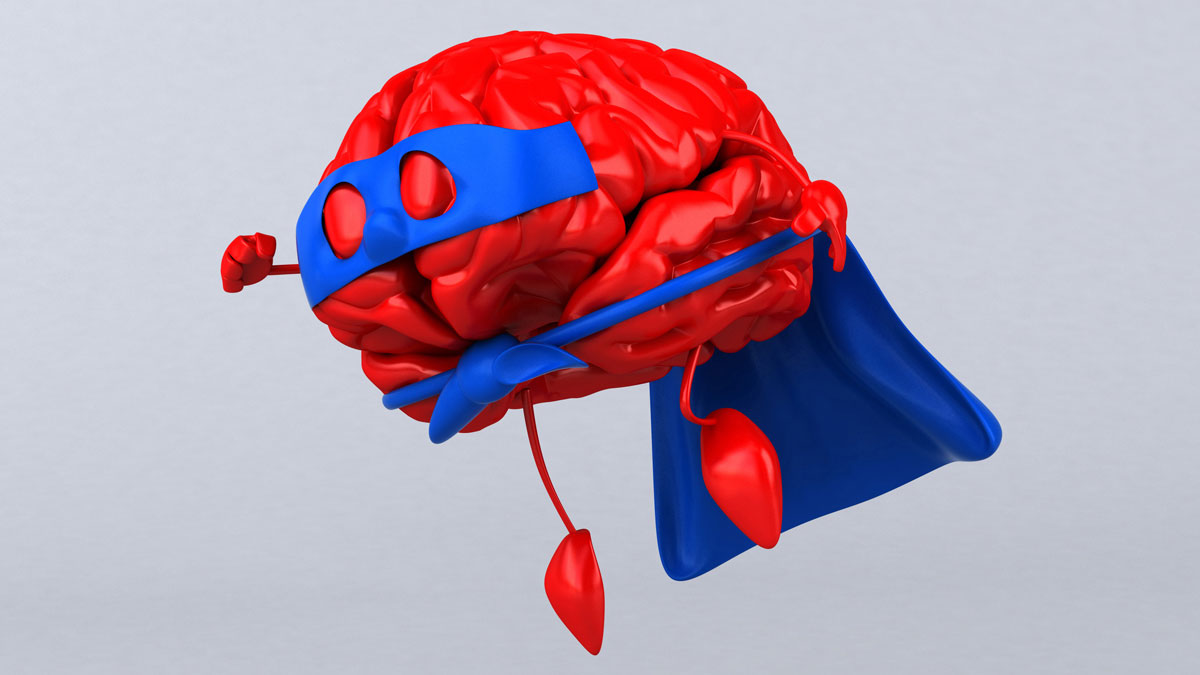It’s no secret that as we age, our bodies tend to slow down. Many adults notice changes in memory, metabolism and reflexes as part of the natural process of aging, but some simple changes in diet and lifestyle can help support brain function over the years. While nothing can stop the march of time, focusing on proper nutrition and remembering to exercise the brain and body is a wonderful way to prioritize your health at any age.
Brittany Jones, MS, RD, LD, the CEO of the Brittany Jones Nutrition Group in Greenville, emphasizes the importance of a healthy, well-balanced diet to her patients. She explained it this way: “It is important to know your numbers, particularly your cholesterol and blood sugar labs, as Alzheimer’s has been known to be associated with Type 2 diabetes.”
She said you should eat fresh fruit, vegetables and lean meat as much as possible, aiming to have half your plate comprised of vegetables at lunch and dinner. Jones recommended the following formula that can be utilized to ensure the proper portions: 25% complex carbohydrates, 25% protein and 50% vegetables.
Many of the nutrients needed for healthy brain activity are found in fresh, unprocessed foods and adults can naturally incorporate omega-3 fatty acid and antioxidant-rich foods into their regular meal routine.
Antioxidants help fight free radicals in the body and brain that are produced or absorbed from the environment. Examples of foods high in antioxidants include berries – particularly blueberries, strawberries and raspberries – pomegranate seeds, kale, spinach and red cabbage. Turmeric is also high in antioxidants and can be used to season dishes. These items can be incorporated into snacks and meals regularly.
Omega-3 fatty acids are primarily present in fatty fish such as salmon, tuna, mackerel, herring and shellfish. Jones encouraged including two to three servings per week of these types of fish in your diet.
Don’t forget about sushi and canned tuna, which may be easier to incorporate long-term and also contain omega-3s. These beneficial fatty acids can also be found in chia seeds, walnuts, flaxseed, avocados and soybeans, as well as in fish oil supplements. Your body can’t produce omega-3 fatty acids on its own, which is why it is important to make sure you are eating a balanced diet that contains these essential fats, which have been shown to help prevent stroke and heart disease and support brain and cell function.
One of Jones’ favorite combinations that she recommends to clients is mixing one-fourth cup of walnuts with one-half cup of blueberries, providing a great snack for boosting cognitive function because it contains both antioxidants and omega-3 fatty acids.
Chelsey Kight, a board-certified nurse practitioner at Trident Heart Clinic in Charleston, also highlighted the importance of keeping cognitive skills sharp through activities such as word puzzles, sudoku, backgammon, card games and board and trivia games. These activities stimulate brain activity and memory, and they often involve other people, which is good because socialization can help promote feelings of well-being and positivity.
Both women were quick to discuss how critical it is to participate in physical activity and exercise. Three hours a week of cardio and strength training, which can be broken down into smaller segments, builds lean muscle and bone strength. Low-impact activities include walking, bike riding, swimming, yoga and barre. Weight training can be as simple as attending two 30-minute yoga or barre sessions weekly.
Kight also pointed out that limiting excessive smoking, alcohol and food high in saturated fat helps keep the body healthy overall, which in turn can have a positive impact on brain health and cognitive function.
It is never too early to take a proactive approach to your health, and making small changes early on can help keep your body in good condition as you approach middle age. In the United States, the average life expectancy is approximately 78 years, so it is crucial to establish good habits that can be sustained over the years to fully enjoy the golden years of retirement and beyond.
By Fay M. Boudet

